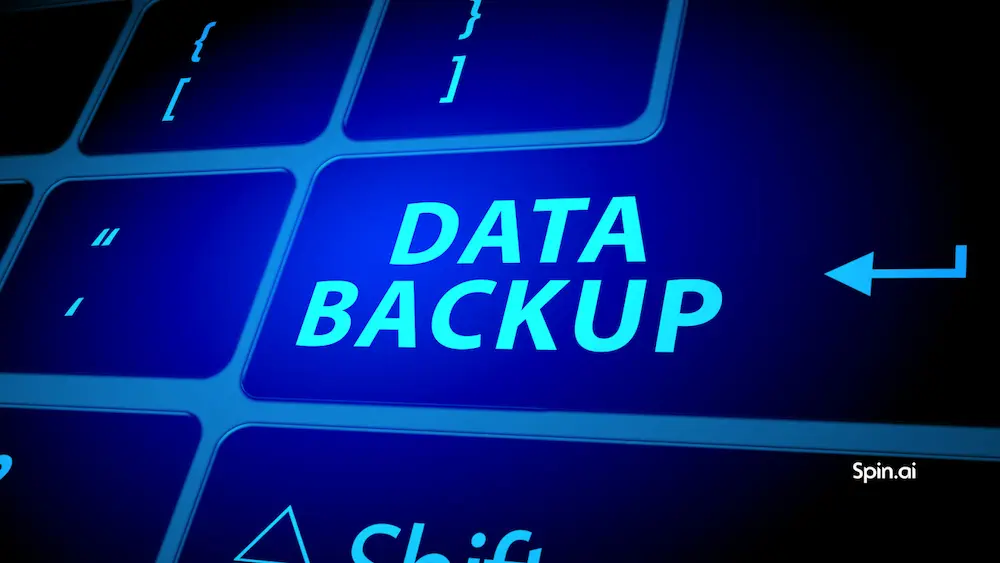Microsoft 365 Email Backup: Why Opt For a Cloud Service
Safeguarding business-critical emails is essential for both data security and compliance purposes. This measure ensures swift recovery of lost or deleted emails, data, and facilitates the seamless transfer of mailbox contents from former employees to new ones. Microsoft 365 (Office 365) email backup is essential for disaster recovery in the face of malware or ransomware threats. This becomes even more crucial considering the security challenges posed by the growing prevalence of hybrid and multi-cloud environments, remote workforces, and BYOD policies.
So you are at the crossroads of deciding which one of the Microsoft 365 cloud email backup solutions would be better for saving users’ emails. On the one hand, some solid on-premises solutions proved themselves as a reliable long-term investment. On the other hand, there are easy-to-use and broadly discussed cloud backup services.
We’ll cut to the chase: if you are an IT admin in a small-to-medium company, it makes sense for you to opt for a cloud email backup service. We came up with five reasons why Microsoft 365 email backup solutions are the best decision for your company.
But first, let’s clarify how cloud backup works.
How Does Cloud Backup Work?
Cloud backup, also known as online backup or remote backup, involves the process of backing up data to servers hosted in the cloud. When you utilize cloud backup, you create copies of your data on remote servers maintained by a third-party cloud service provider. These providers usually impose charges based on factors such as storage space, server requirements, available bandwidth, and the number of users accessing the servers.
Cloud backup solutions outpass on-prem backups – those storing data locally onsite or offsite without the involvement of third parties – due to their cost-effectiveness and ease of use. Cloud backup services operate by duplicating files from the user’s computer to their servers. Following this, the files undergo compression and encryption processes for heightened security before being stored on the server. Retrieving backed-up files is convenient, allowing access from any internet-connected device when needed.
Cloud backup employs two main approaches:
- Continuous replication: This method involves the cloud provider regularly copying the company’s data to its servers in real time, ensuring an always-current data copy. It is commonly utilized by businesses that require real-time data synchronization.
- Scheduled replication: In this approach, the cloud provider copies the company’s data based on a predetermined schedule. Companies employing this method do not necessarily need an always-current copy of their data.
5 Reasons Cloud Backup Beats On-Premises
1. Costly. The expenses accompanying set-up and maintenance of on-premises backup are immense. The hardware and software systems, regular updates and troubleshooting, IT team who manages the process, storage, and electricity – this all entails significant expenses for your company.
With cloud backup, you have no upfront and additional expenses. You are paying monthly/yearly fees for the number of licenses. No overheads.
2. Time and energy consuming. You can’t just click a few buttons and start running an on-prem backup. Before that, you must establish the hardware and software, configure it, and deploy the process. When you launch the process, you must consistently monitor the system for potential threats and errors and troubleshoot them.
If you choose cloud to backup email in Microsoft 365, all you have to do is pay a monthly or yearly fee and click a few buttons.
3. Subject to physical damage. A flood or fire can quickly destroy the on-premises hardware.
Cloud backup, in contrast, stores your data on remote data servers, which are protected from one-time damage.
4. Less safe. Small-to-medium companies that keep their local backup can hardly brag about the level of security compatible with big cloud storage providers. Big players in the cloud storage field like Azure (Microsoft), AWS (Amazon), and GCP (Google) have the tightest security and 24/7 surveillance.
5. Hardly scalable. Scalability is crucial for small-to-medium businesses because the amount of their data grows and changes. But with on-premises backup, the ability to scale up or scale down is not as flexible as with cloud services. To increase the computing capacity and the amount of storage, you have to buy new virtual machines, servers, and hard drives. But in case you don’t need this storage anymore, you can’t just “unsubscribe” from these servers and hardware.
With cloud backup, the scalability is much higher. Since this is a service-by-demand, you are only adding or deleting licenses depending on the number of users. So you only pay for what you use at the moment.
How to Choose Microsoft 365 Email Cloud Backup Solution
There are many services with a common goal – to save your data. But every one of them has its unique nuances that make all the difference. Choosing a cloud backup service is all about your company’s needs and the nuances of a backup service that can satisfy them.
Here are key features you should pay attention to when choosing a cloud backup service:
1. Automated backup 1x-3x/day. This is what your service should provide.
2. Encryption. Your data must be encrypted throughout all the cycles of backup – both in transit and at rest.
3. Unlimited storage.
4. 24/7 customer support. Not all of the services provide decent support. If they don’t mention the 24/7 support service on their site, most likely, they don’t offer such a service.
5. Convenient user management panel. Managing users’ data shouldn’t be rocket science. You need to be able to do your job as fast as possible.
6. The ability to migrate user’s data across the accounts. There is no native Microsoft 365 method that allows you to seamlessly transfer backed-up data of a leaving employee to another account. This is an obligation of the backup service to do.
7. Restore-in-time so you could be able to restore files with the same folder hierarchy they’ve been backed up.For those of you who don’t want to waste time looking for a backup service that combines all of these features, we suggest you check out Spinbackup and have your data protected! Click here for a free demo.
Was this helpful?
How Can You Maximize SaaS Security Benefits?
Let's get started with a live demo
Latest blog posts
Why Google Drive Backups Are Important
Google Drive offers customers a unique blend of robust security features to keep their data...
Evaluating the Best Backup Services: What to Look For and Popular O...
If you’re here right now you’ve probably realized how important it is to backup your...
Brewing Trouble: How a Starbucks Ransomware Attack Poured Cold Wate...
Cybercriminals often carry out attacks around holidays as this helps to ensure the most amount...


